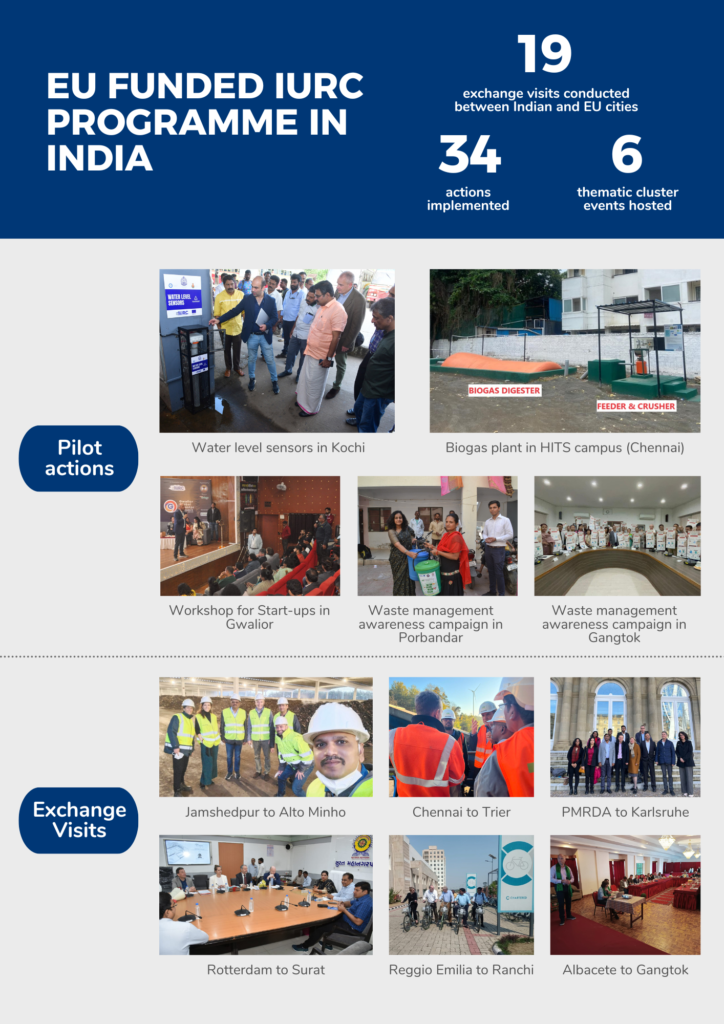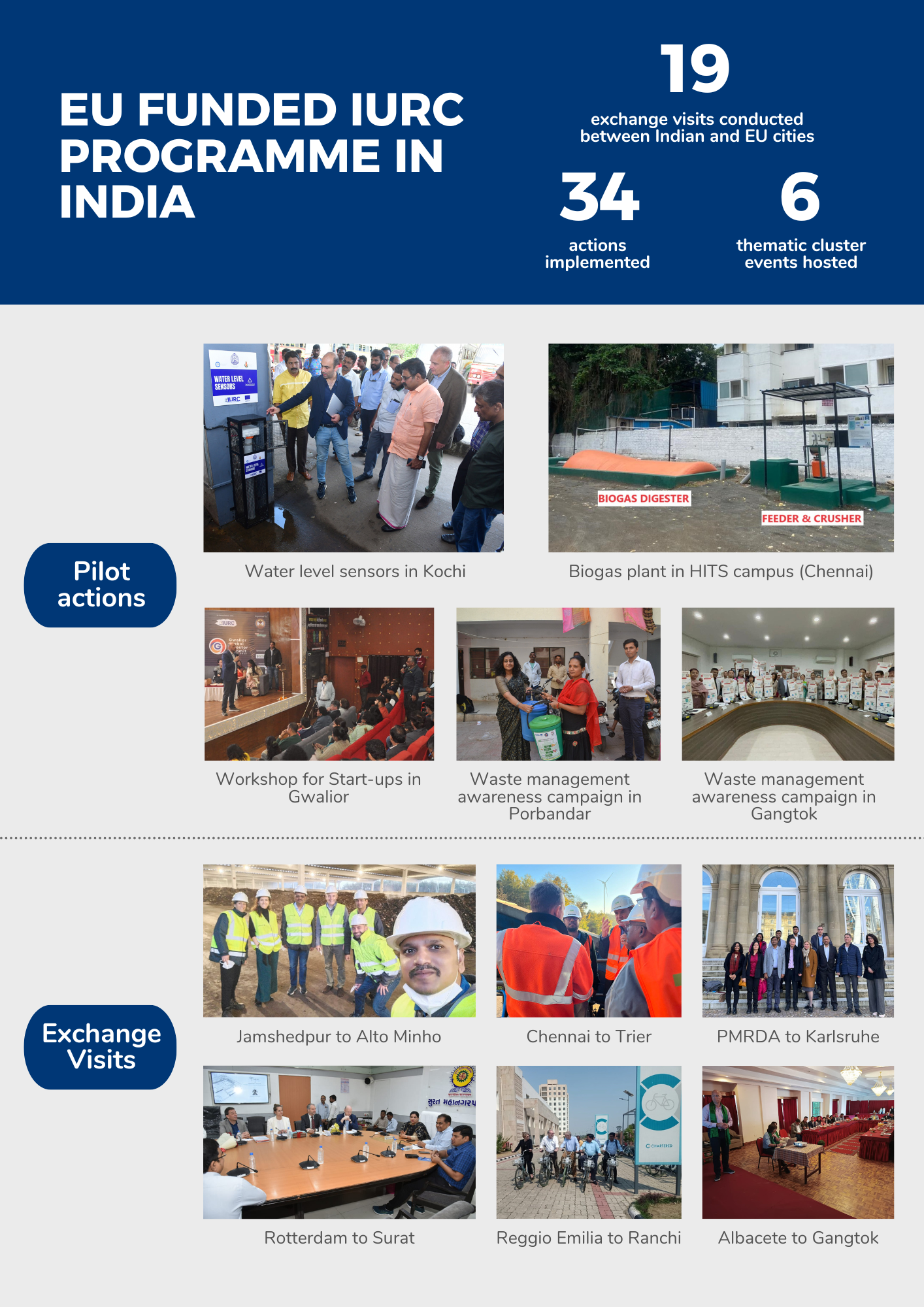The International Urban and Regional Cooperation (IURC) Programme was formally launched in India in February 2022 and worked with 14 Indian cities and 9 European cities, through 9 city pairings and five single cities. The programme focused on exchange of best practices, thematic cluster workshops, exchange visits, bi-lateral meetings, etc. For three city pairings it was possible to design and implement demonstration projects as part of the Competitive Fund initiative. The topics of cooperation ranged from flood management, solid waste management, non-motorised transport, to smart parking, business innovation – support for start-ups, circular economy, and sustainable urban planning.
Few of our notable pilot actions are as follows:
- Five water level sensors were installed in Kochi. When water levels exceed user defined thresholds, automatic notifications are sent out to the city authorities. This initiative is based on the cooperation between Kochi Municipal Corporation, the City of Messina, and the University of Messina. In addition, HafenCity University developed a flood risk map for the city of Kochi using the Toolkit for Open and Sustainable City Planning and Analysis (TOSCA).
- As part of the cooperation between Chennai (Chengalpattu district), the city of Trier, the Hindustan Institute of Technology and Science (HITS), Chennai and the Trier University of Applied Sciences (TUAS), a biogas pilot plant was constructed at the HITS campus. The plant, which converts untapped organic waste from the campus to useful energy, handles 300 kg/day of food waste produced within the campus premises, while the output is used for cooking.
- A solid waste management interactive awareness pilot project was delivered at the of Bokhira ward in Porbandar in cooperation with the city authorities and Saurashtra Cement Limited. Waste segregation and its benefits were introduced to the residents in an interactive manner and waste segregation bins were distributed.
- The Pune Metropolitan Region Development Authority (PMRDA), the City of Karlsruhe, and IURC experts worked together to design a concept for a ‘Centre for Excellence for Urban Planning’ and deliver a workshop on urban planning.
- A series of interactive advisory sessions/workshops on start-up development were conducted as part of the cooperation between Gwalior Municipal Corporation, G-Incube, City of Leuven, Smart City Leuven, and KU Leuven, for start-ups in Gwalior. Additionally, a group of 4 start-up representatives participated in the And& Connect festival in Leuven where the participants were exposed to a collaborative learning environment, facilitating an exchange of knowledge and ideas setting the basis for future growth.

IURC AA hosted a range of thematic cluster workshops for cities and key stakeholders. The events had experts from India, Europe and Asia and Australasian cities sharing best practices on mobility, flood management, local air quality, waste biomining, digital tools for flood management and smart parking. Additionally, an e-certificate course on ‘Mainstreaming Urban Climate Action’ was launched in 2021 with several enrolments from city officials, students, and other stakeholders. The IURC India team authored an article titled “Partnerships: An Accelerator to a Sustainable Urban Future” which was featured in ‘Shashwat’ a publication by the Green Rating for Integrated Habitat Assessment (GRIHA) Council.
Overall, IURC contributed to the dissemination of best practices across the thematic networks regarding effective policies and technologies. The potential of replicability has been presented and a long-term cooperation between the city pairs which goes beyond the IURC programme has been established through the development of urban cooperation action plans and implementation of pilot actions. The cities are therefore a step closer to becoming resilient and improving their quality of life.
